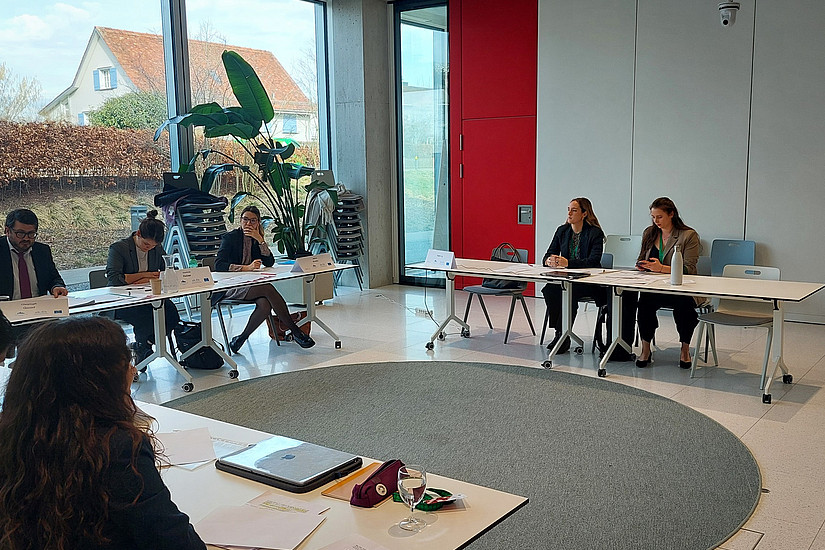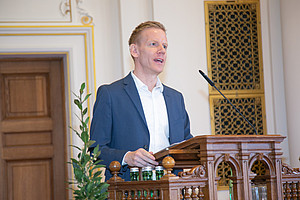This February, we, Sophia Urban and Alexandra Sameño Daurel, had the privilege of representing REWI Uni Graz in one of the regional rounds of the Helga Pedersen Moot Court Competition. This moot court simulates proceedings before the European Court of Human Rights (ECtHR) and honours Helga Pedersen, the first female judge at this court. Annually, a fictional case is released, inviting teams of two to four law students to represent the involved parties before the ECtHR through written submissions and oral pleadings. 60-100 teams participate in the all-European competition every year.
The University of Graz supports participants by offering specialized classes tailored to its demands. Despite being just a duo, my colleague and I decided to take the opportunity to apply for the 12th edition of the competition.
This year's case on cancel culture vis-a-vis the right to freedom of expression revolves around David Borg, a fictional figure seen as a political extremist and conspiracy theorist who was supposed to hold lectures at a university. However, after a violent, student-led protest, his lectures were cancelled, causing him to take legal action against the University before the national courts of the fictitious state of Zemland. As these courts did not decide in favour of Mr. Borg, he applied to the ECtHR, alleging violations of his rights to freedom of expression (Art 10 European Convention on Human Rigths - ECHR) and non-discrimination (Art 14 ECHR).
With approximately two months to draft our written submissions, we got familiar with the case’s intricacies, the system of the Convention and the jurisprudence of the ECtHR. We wrote 20 pages of submissions for each party, that is to say for Mr. Borg as the Applicant and Zemland as the Respondent State.
After handing in our submissions in December, our focus shifted to preparing 35-minute oral pleadings for each party, along with a rebuttal and sur-rebuttal, for the regional round in St. Gallen, Switzerland. To do so, we practiced our pleadings, our time management, as well as answering questions from our team coaches, Gerd Oberleitner and Gregor Fischer-Lessiak, who acted as judges in our exercise sessions. Additionally, we trained our rhetoric with coach Monika Schmidt.
Finally, after one and a half months of practicing, the regional round arrived, in which we had to represent the Applicant as well as the Respondent side in two separate oral pleading sessions over two days. Throughout the proceedings, we maintained composure, articulated our arguments persuasively, addressed the judges' inquiries, and adhered to our allotted time.
The experience not only fostered our ability to construct solid legal arguments within the ECtHR framework but also enhanced our public speaking and quick-thinking skills. It helped us to improve our self-confidence, openness, and resilience in high-pressure situations. We are immensely grateful to our coaches who supported us every step of the way. Now, all that remains is to cross our fingers and to hope that our efforts pay off, and we – together with 17 other teams - get to move on to the finals in Strasbourg.




